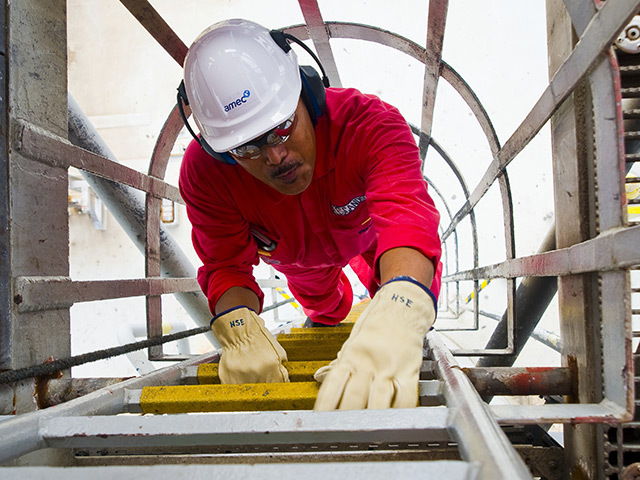
Salaries in Scotland for skilled oil and gas professionals are around 3.3% higher than the rest of the UK, according to a new survey.
The market specialist behind it – Hays Oil and Gas – reports that average salaries north of the border are about £62,000, compared with just under £60,000 in the rest of the UK.
It says the discrepancy is due to a shortage of skills, which was quoted as being the most significant issue affecting employers (70%) in Scotland in the next 12 months.
Globally, lack of skills was only quoted by 37% of respondents as being a concern.
Nearly 46% of respondents anticipated an increase in staffing levels of up to 5% in the coming year, with 80% forecasting a rise in salaries of at least 5%.
Hays also reports that “job flow” in Aberdeen for niche areas such as mechanical engineering has been positive, with the practice of being approached informally to fill a post being more prevalent in Scotland (26%) than globally.
Ian Eker, director for Hays Oil and Gas in Scotland, said: “These figures are quite striking and suggest that employers continue to search for talent in the North Sea area in a very small pool.
“The result is a domino effect which pushes salaries higher as people move within this small pool.
“Oil and gas professionals seem reluctant to relocate to the north-east from other parts of the UK – or even other parts of Scotland – despite the Aberdeen area being a beautiful location to live, with many job opportunities.
“Workers in other countries, especially the US, don’t think twice about relocating within their country.”
Survey findings reported earlier this week showed wages in the UK’s thriving oil and gas industry growing by 15% a year, far outstripping the rate of inflation.
The study of more than 5,000 companies revealed expectations of an average wage of £73,600 by the end of the year, compared with £64,000 at the start, due to a chronic skills shortage.
Nearly three-quarters of the firms (70%) were worried wages were rising too fast. They cited different reasons for the skills shortage, with 35% saying it was caused by too little investment in apprenticeships.
Salaries in Scotland for skilled oil and gas professionals are around 3.3% higher than the rest of the UK, according to a new survey.
The market specialist behind it – Hays Oil and Gas – reports that average salaries north of the border are about £62,000, compared with just under £60,000 in the rest of the UK.
It says the discrepancy is due to a shortage of skills, which was quoted as being the most significant issue affecting employers (70%) in Scotland in the next 12 months.
Globally, lack of skills was only quoted by 37% of respondents as being a concern.
Nearly 46% of respondents anticipated an increase in staffing levels of up to 5% in the coming year, with 80% forecasting a rise in salaries of at least 5%.
Hays also reports that “job flow” in Aberdeen for niche areas such as mechanical engineering has been positive, with the practice of being approached informally to fill a post being more prevalent in Scotland (26%) than globally.
Ian Eker, director for Hays Oil and Gas in Scotland, said: “These figures are quite striking and suggest that employers continue to search for talent in the North Sea area in a very small pool.
“The result is a domino effect which pushes salaries higher as people move within this small pool.
“Oil and gas professionals seem reluctant to relocate to the north-east from other parts of the UK – or even other parts of Scotland – despite the Aberdeen area being a beautiful location to live, with many job opportunities.
“Workers in other countries, especially the US, don’t think twice about relocating within their country.”
Survey findings reported earlier this week showed wages in the UK’s thriving oil and gas industry growing by 15% a year, far outstripping the rate of inflation.
The study of more than 5,000 companies revealed expectations of an average wage of £73,600 by the end of the year, compared with £64,000 at the start, due to a chronic skills shortage.
Nearly three-quarters of the firms (70%) were worried wages were rising too fast. They cited different reasons for the skills shortage, with 35% saying it was caused by too little investment in apprenticeships.
Recommended for you
